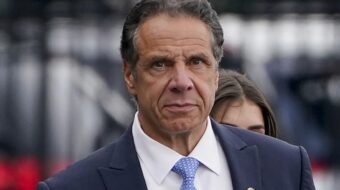AFL-CIO blogger Mike Hall writes, “When the Department of Labor in December asked workers and employers to comment on their experiences with regulations that implement the Family and Medical Leave Act (FMLA), many observers believed it was the first step by the Bush administration to revise the rules to restrict access to family leave — as big business has clamored for since it was enacted in 1993.”
But the outpouring of support for FMLA — from more than 15,000 workers and groups — seems to have slowed the drive to water it down, at least for now.
Victoria Lipnic, assistant secretary of labor, says the department has no imminent plans to issue changes to the regulations. In the forward to a report recently issue by the department summarizing the comments, she says: “There is a broad consensus that family and medical leave is good for workers and their families, is in the public interest and is good workplace policy. … There are no proposals for regulatory changes being put forward by the department with this report.”
But she also told BNA’s Daily Labor Report, “There are clearly areas that need to be cleaned up.”
Sure, there are challenges, says Debra Ness, president of the National Partnership for Women and Families. “We know that it can be challenging to manage employees with illnesses that require unplanned absences, but that is a challenge all employers must meet,” she said. “It is simply a part of doing business. With our inadequate health care system and aging workforce, and with chronic illness on the rise, this will become more of an issue in years to come. The best answers may lie in increased access to preventive health care and establishing a minimum federal standard of paid sick days.”
According to the Labor Department report, more than 76 million workers are eligible to take family and medical leave, and in 2005 between 6.1 million and 13 million workers took leave.
Comments on the FMLA included ways to improve it. Many urged that the act could be improved by providing paid leave. Nearly half of private-sector workers and 79 percent of low-income workers have no paid sick leave. Recently, working families won paid sick leave in San Francisco and family leave in Washington state.
— AFL-CIO Now Blog News









